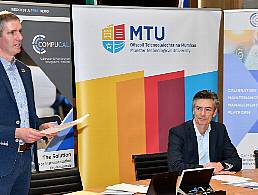Along with the right combination of skills, an interest in lifelong learning has become an important attribute in job candidates. Here are some ways to show interviewers you have it.
How we work now is different than before, and that’s not just because of Covid-19. It wasn’t so long ago that many people would accept a particular role in a company and stay in it for the majority of their working life. Now, however, things are much more fluid. Many switch between jobs every few years and even for those who don’t, internal progression and lateral moves within a company are very common.
As such, lifelong learning has become one of the most critical elements of modern work. Thankfully, this doesn’t mean you have to commit to formal learning at college in order to upskill. Employers are placing greater importance on retaining their staff and giving them the tools and support to flourish, leading to better individual job satisfaction and, ultimately, a healthier and more successful business.
Certainly, jobseekers should be keeping their eye out for potential employers that are passionate about helping their staff to keep learning. But it works both ways. Recruiters and HR teams are also looking for people with enthusiasm for continued growth.
“No matter what stage we are at in our careers, a passion for continuous learning is very important,” Ann Marie Clyne, head of HR at Mastercard, told Siliconrepublic.com.
She explained that continuing to learn on a daily basis is the only way we can “stay abreast of new and emerging technology, methodologies and best practices”. In the fast-paced work environments we have today, she added that keeping your finger on the pulse is “critically important”. So, how can you show that to a potential employer?
Showing your curious side
You might be an incredibly dedicated learner, but your interviewers won’t know that unless you tell them. According to Clyne, you need to give them evidence of “how you are curious, where you have taken initiative, how you are a thoughtful risk taker and, very importantly, how you have learned from failures”.
‘Candidates that have a natural curiosity towards continuous learning will stand out’
– ANN MARIE CLYNE
“If it is not specifically called out during an interview, interviewees should look for ways to be able to bring it into the conversation,” she added. “Be curious about the company’s learning strategy, seek out opportunities to talk about any special projects worked on outside of the day-to-day role, and ask what supports and resources are in place to provide opportunities for continuous learning.
“All of these things show, in many ways, a candidate’s passion for learning without being asked the direct question. Candidates that have a natural curiosity towards continuous learning will also stand out.”
Professional and personal development
Workhuman is another company focused on lifelong learning. As a software developer for social-recognition and performance-management platforms, its company-wide goal is to create spaces for colleagues to learn from each other and celebrate developments.
Michelle Daly, a senior technical recruiter at the firm, said her team is looking for candidates who they can help become “innovators, visionaries and game changers”. As a result, it’s important that potential new hires demonstrate a passion for learning and development during the recruitment process.
“We are looking for candidates to demonstrate an interest in growing and developing in our company, not only professionally but personally as well,” Daly said. “Candidates can demonstrate this by applying their growth stories to any question asked, or even asking the question about what opportunities there are in the company to learn and grow.
“Once they’ve been hired, they can continue to show this passion by taking advantage of our many curated learning opportunities or learning platforms, as well as participating in our available employee resource groups.”
A passport to success
It’s clear that lifelong learning has become important in many industries. In this article, Pierre Vandergheynst and Isabelle Vonèche Cardia of the École polytechnique fédérale de Lausanne in Switzerland referred to it as “a passport to success” and predicted that a model of continuous learning could even surpass traditional education routes in the future.
“If lifelong learning was to become a priority and the new norm, diplomas, just like passports, could be revalidated periodically,” they wrote. “A time-determined revalidation would ease administration for everybody. Universities, as well as employers and employees, would know when they have to retrain. For instance, graduates from the year 2000 would have to come back in 2005.”
‘Always set time aside every month to do a new course online’
– MIKE FEERICK
Mike Feerick, CEO of learning platform Alison.com, recently told Siliconrepublic.com that to create greater access to employment opportunities for everyone, we should also give greater recognition to informal learning and non-institutional learning.
With that in mind, interview conversations could focus on different types of learning and training, and not just what someone has studied in college. If you can tell a hiring panel that you’ve recently taken a short course off your own bat, for example, your penchant for learning will be obvious.
As Feerick put it: “Keep learning. Always set time aside every month to do a new course online. Keep your curiosity, as that will feed your imagination and that is where the greatest power of the mind lies.”




